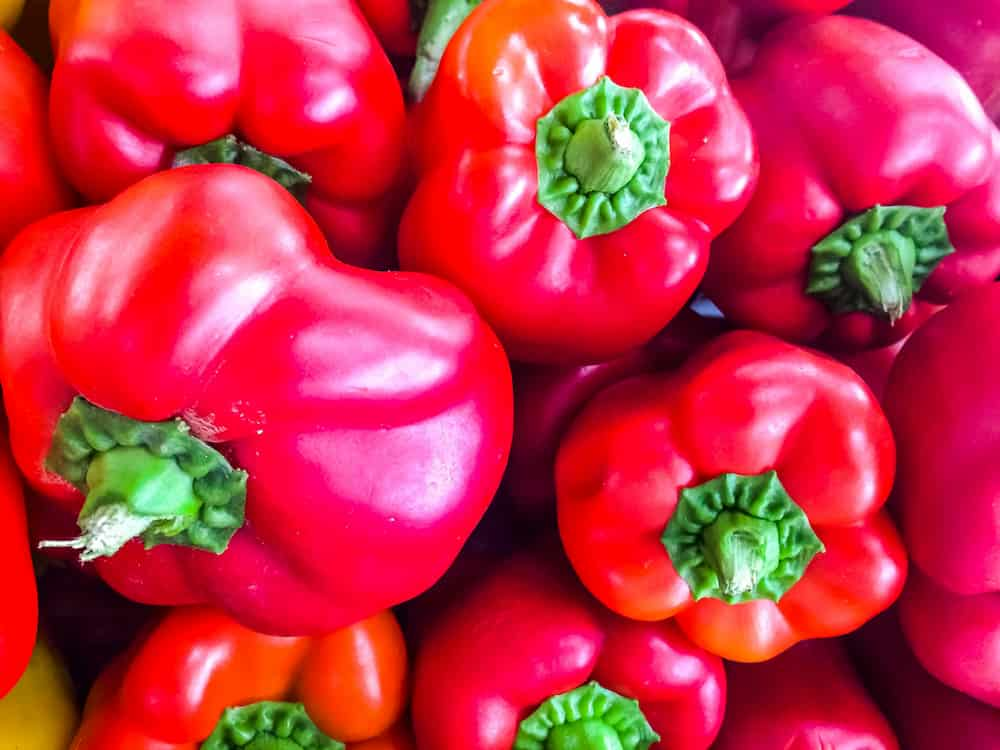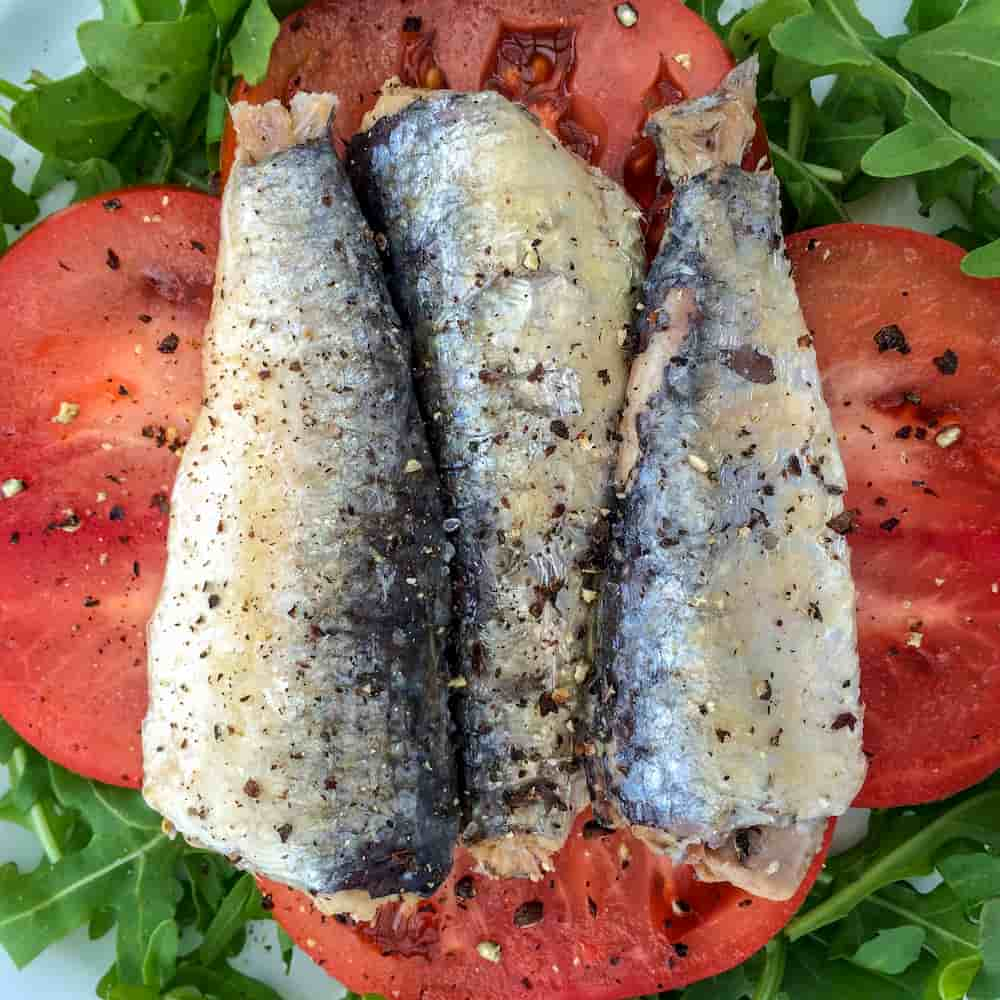
Could These Foods Help Fight Infection?
The link between our diet and the strength of our immune system is well studied, with malnutrition being one of the leading factors of immunodeficiency (when the body struggles to fight off infections) [1]. It’s obvious that a well rounded diet is key, but are there particular foods that help keep our immune system in good shape? Let’s take a look at the claims, and see whether shifting your diet to include these vital vitamins and minerals could reduce your risk of colds and respiratory infections.
Red Peppers
When we think of foods containing Vitamin C, we immediately jump to citrus fruits such as oranges, and that’s certainly no mistake. Oranges and grapefruits are rich in Vitamin C, and are easy to work into any diet as a fresh, healthy snack. But they aren’t the only source, nor the most potent – in fact, gram for gram the humble red pepper can contain up to 3 times more Vitamin C than an orange! Of all the peppers, red ones have been on the vine the longest and therefore pack in more vitamins than other varieties, including good amounts of beta-carotene (which also helps keep your immune system strong, as we’ll see later).
Vitamin C has long been perceived as a preventative to the common cold, but is there any science in this assumption? Studies have drawn mixed results. There seems to be little evidence that taking Vitamin C supplements prevents illness, but it could reduce the duration of common colds, particularly in the physically active [2]. Basically, chomping down on supplements isn’t going to make you invincible to a runny nose! It’s not about turning your white blood cells into superheroes – it’s more about providing your immune system with the vitamins it requires to keep running effectively. Vitamin C is essential for this purpose.
In addition to red peppers and citrus fruits, you can also try:
- Strawberries and blackcurrants
- Broccoli and brussel sprouts
- Potatoes (with the skin)

Oily Fish
If you’re deficient in Vitamin D, you’re more susceptible to infection [3]. Some suggest it may even have a role in fighting respiratory disease [4]. That’s why getting enough sunlight throughout the year is so important, as it’s our most immediate source of the vitamin. Yet we can’t always rely on the rays of the sun, particularly come autumn and winter. That’s why we sometimes have to turn to our diet for a boost.
There actually aren’t that many foods that are rich in Vitamin D, and they tend to be animal products. In particular, oily fish such as salmon, tuna and sardines provide a great source of the vitamin, in addition to protein and Omega-3 fatty acids. Wild caught fish tend to have higher amounts than their farmed equivalents. If you’re not fish friendly, try egg yolks.
Even better news for our vegan readers – wild mushrooms, or farmed mushrooms treated with UV (Ultraviolet) light, are a good source of Vitamin D. Plants sources such as these don’t provide the same Vitamin D as animal sources, however. Oily fish and egg yolks contain Vitamin D3, whereas mushrooms and fortified cereals contain Vitamin D2, which may be less effective at raising levels of the vitamin in the blood. Let’s not undersell mushrooms though – if they’re sufficiently exposed to UV, they could be as effective as supplements [5].

Carrots
They may not make you see in the dark, but carrots certainly have health benefits! The distinctive orange colours found in some vegetables originate from the compound Beta Carotene. When consumed, Beta Carotene is converted by our body into Vitamin A, which is essential for enhancing immune function and boasts anti-inflammatory effects [6]
Carrots, sweet potatoes and butternut squash are all orange and yes, all provide us with Beta Carotene. Combined they can make for a hearty soup or a roasted vegetable medley. But we can look to our greens, too – leafy veg like spinach or kale does the job, as does lettuce.
You can also skip straight to the Vitamin A sources if you’d like, which tend to be found in dairy products such as:
- Cheese
- Eggs
- Milk
- Yogurt
- Fortified spreads

Red Meat
Good news if you’re a fan of beef: it’s a great source of zinc, a nutrient that doesn’t always jump to mind but is actually essential for our bodily health. Zinc helps us produce new cells and enzymes, as well as healing our wounds. Over time it’s been suggested that supplementing with zinc could be a way to fight the common cold [6]. So why not look to include it in your diet?
The carnivorous among us are probably getting good amounts of zinc from their daily diets. All kinds of meat, including beef, pork and chicken, are great sources of the nutrient. Shellfish is a calorie light option which can be just as rich, and other animals products such as milk and cheese also contribute. But what if you are looking to cut down on meat, or are vegetarian or vegan? Plant sources include:
- Chickpeas & lentils
- Squash, pumpkin and sesame seeds
- Peanuts, cashews and almonds
- Whole grains and fortified cereals
- Best of all: dark chocolate!
Check out ‘Do Vegans Need These 6 Supplements To Be Healthy?’ to find more information on plant sources of zinc as well as other vitamins and minerals.

Nuts, Seeds and Cooking Oils
As we work our way through the nutrition alphabet, let’s take a look at the much neglected Vitamin E. It doesn’t just keep our eyes sharp and our skin glowing. It’s an antioxidant that plays a regulatory role in our immune system [7].
So where can we get it from? Oils such as wheat germ oil, rice bran oil and safflower oil are all super high in Vitamin E, so cooking with them could be an easy way to integrate a good source into your diet. There is a more appealing way to get those immune boosting properties, however: snacking on nuts such as almonds and peanuts. By replacing crisps or crackers with a pack of nuts or sunflower seeds, you can get a convenient and satisfying moreish source of an essential vitamin. For some extra variety and flavour, add them to yogurts, cereal or salads. Let’s not forget the millennial food icon of the avocado, either! It’s that perfect combination of Vitamin E alongside healthy fat and potassium.

Eating Better = Feeling Better
There is no super diet or magic supplement that makes you immune to all disease. That’s just not how it works. But you do need to be eating right in order for your body to optimally fight off infection. Including these foods won’t supercharge you, but they will help maintain your immune system’s fighting chance against illness.
You’ll also just generally feel better if you’re getting the nutrients you need. Not just physically, but mentally – Can Healthy Bacteria Make You Happy?
Sources
- Nutrition and the Immune System: An Introduction | PubMed
- Vitamin C For Preventing and Treating the Common Cold | PubMed
- Vitamin D and the Immune System | PubMed
- Vitamin D and Respiratory Health | PubMed
- Bioavailability of Vitamin D₂ from UV-B-irradiated Button Mushrooms | PubMed
- Zinc for Preventing and Treating the Common Cold | PubMed
- Regulatory Role of Vitamin E in the Immune System and Inflammation | PubMed
Further Reading
- How to boost your immune system | Harvard health publishing
- 15 Foods That Boost the Immune System | Healthline







